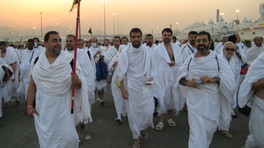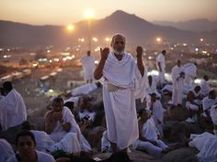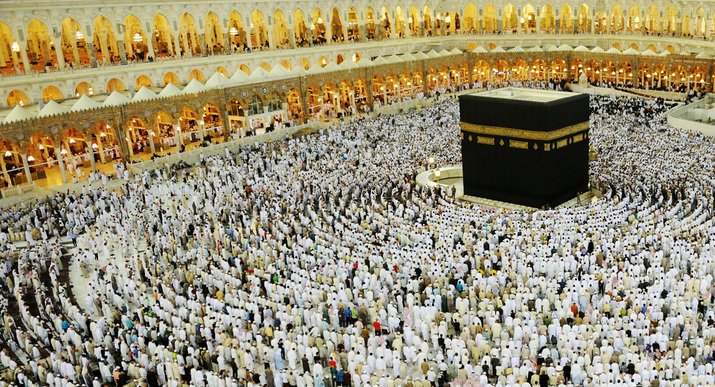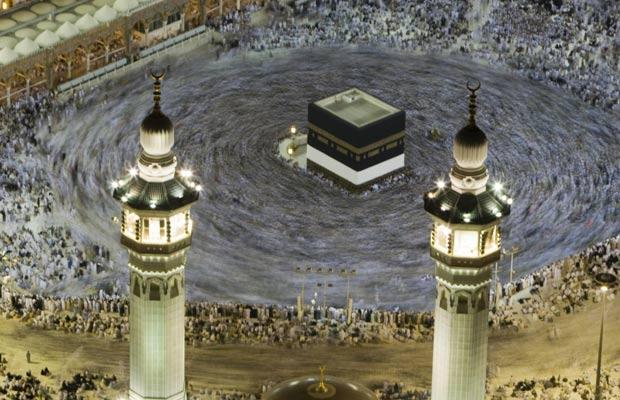This pilgrimage, known as the Hajj, is one of the Five Pillars of Islam by which every practising Muslim must abide. This year, the Hajj takes place from September 21st to 26th, it takes place annually between the 8th and 12th days of Dhu-al-Hijjah, the final month of the lunar Islamic calendar.
 Pilgrims walking the Hajj in traditional Ihram
Pilgrims walking the Hajj in traditional Ihram Muslims claim that the origins of the Hajj date back to 2,000 B.C. when Ishmael, the infant son of the prophet Ibrahim (Or Abraham, as he is called in the Old Testament) and Ibrahim's wife Hager were stranded in the desert. With Ishmael close to death from thirst, Hager ran back and forth between the hills of Safa and Marwa looking for water until the angel Jibril (Gabriel) touched down to earth and created a spring of fresh water for the baby, known as the Well of Zamzam.
 A pilgrim prays at Mt. Arafat
A pilgrim prays at Mt. Arafat The ultimate rite of passage during the Hajj is circling the Kaaba, an immense black cube, spiritually considered by Muslims to be the centre of the world, and literally located in the centre of the Masjid al-Haram mosque in Mecca. During the Hajj, vast swells of worshippers seeking forgiveness circle the Kaaba counter-clockwise, seven times. Completion of all of the mandated rituals earns the pilgrim the title of hajji (literally, one who has performed the Hajj) — coveted and admired in Muslim communities around the world.




 RSS Feed
RSS Feed
